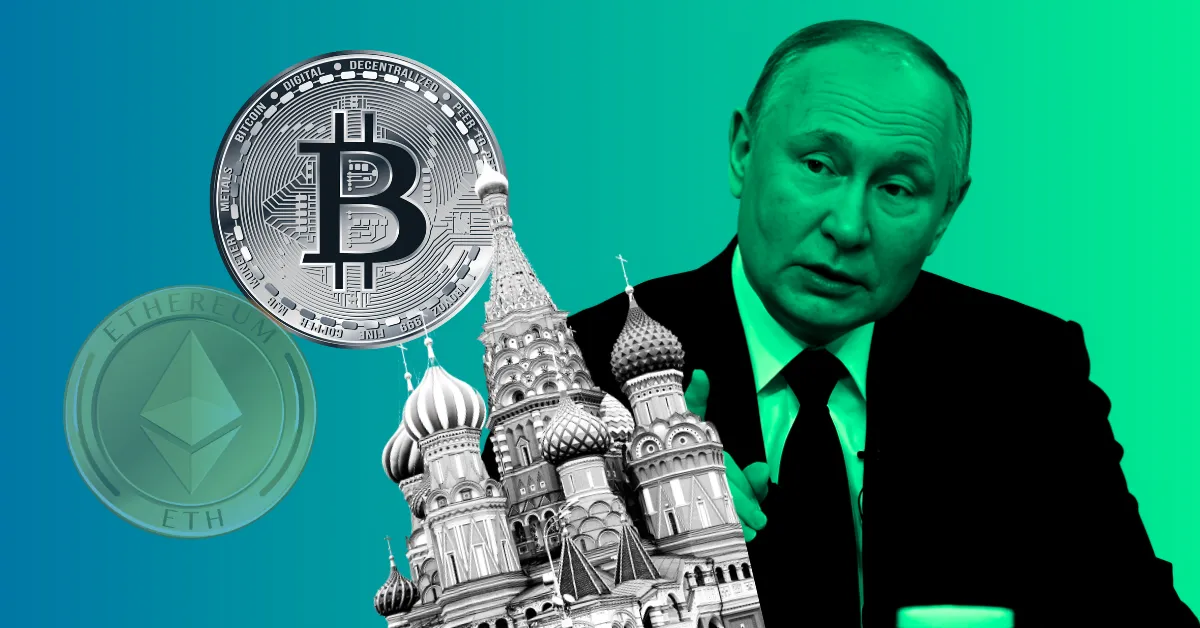
USDT Faces Restriction in Russia: New Central Bank rules likely exclude USDT from domestic use, citing concerns over sanctions and wallet freezes.
Russia Shifts to Alternative Payment Systems: While USDT may still be used for international trade, Russia is pushing tokenized assets and CBDCs for cross-border settlements.
As Russia tightens its grip on the crypto sector, a fresh wave of Central Bank regulations could severely affect USDT trading within the country. While Russian firms may still be able to use stablecoins like Tether for cross-border settlements, domestic investor access to USDT appears increasingly at risk.
No Explicit Ban, but All Signs Point to Trouble for USDT
Following the freeze of USDT wallets last month, the Central Bank of Russia has introduced new rules before launching its regulated crypto sandbox on May 26. The sandbox is designed to let firms use crypto in global trade, but with tight restrictions on what tokens are allowed. While the bank avoids naming specific assets, experts believe these regulations are effectively engineered to exclude USDT and most other USD-backed stablecoins.
Under the new framework, only tokens from “friendly countries” can be traded, those not support sanctions against Russia. Moreover, the rules target coins that could be “blocked” or deactivated by issuers, a clause analysts say directly points at Tether, which has the ability to freeze wallets and deny redemptions.
Experts Say USDT Doesn’t Qualify
Mikhail Uspensky, a crypto regulatory advisor in Russia, confirmed that USDT likely doesn’t meet the new requirements and would be barred from domestic circulation. Georgy Gukasyan, legal director at DRT, further explained that Tether’s compliance with U.S. sanctions gives it the power to deny redemptions and freeze assets, leaving Russian holders vulnerable.
Stablecoin Use Abroad Still Open
Despite the restrictions, both experts agree that using USDT for cross-border settlements will remain legal. The sandbox’s core intent is to support international trade, not individual investors. But for traders and crypto investors in Russia, the writing on the wall is clear— USDT is on its way out.
With Tether already cooperating with U.S. authorities in past enforcement actions, such as freezing wallets linked to Russian exchange Garantex, confidence in USDT’s usability within Russia is eroding fast.
Other Alternate Ways
Russia is also advancing two pilot programs for cross-border payments using digital assets. One leverages tokenized assets like gold under its DFA regime, now approved for international use despite onboarding hurdles for foreigners.
The second, launched recently, allows crypto payments for imports and exports, marking a shift in the central bank’s stance. Pilot transactions began in December and are expanding. Russia is also developing a digital ruble and working on the BRICS Bridge, a CBDC-based system for cross-border payments in local currencies.
Never Miss a Beat in the Crypto World!
Stay ahead with breaking news, expert analysis, and real-time updates on the latest trends in Bitcoin, altcoins, DeFi, NFTs, and more.
FAQs
Yes, crypto is legal in Russia, but it cannot be used for payments inside the country—only for investment and cross-border trade.
Russia’s official crypto is the digital ruble, a central bank digital currency (CBDC) currently under development and pilot testing.
Yes, crypto gains are taxed in Russia. Individuals must declare profits and pay tax on income earned from crypto trading or investing.
Crypto profits are taxed at a 13% rate for residents and 15% for high earners or non-residents, similar to other capital gains.







